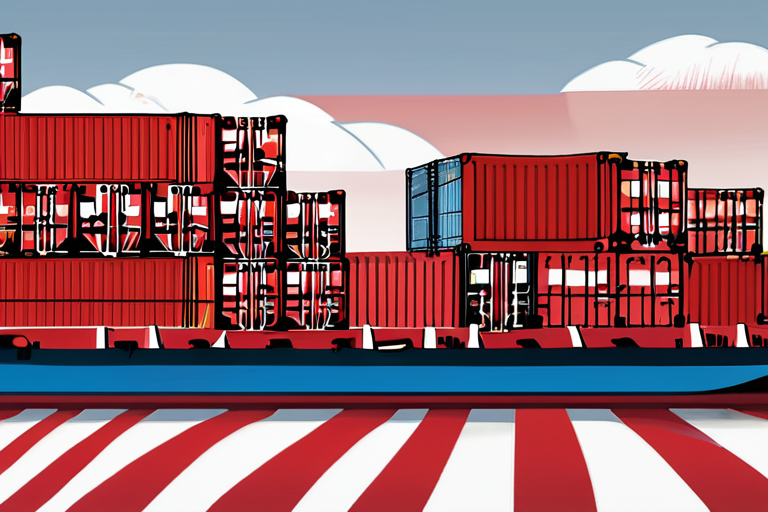Trump Unleashes "Massive" Tariff Threat on China Amid Escalating Trade Tensions


Join 0 others in the conversation
Your voice matters in this discussion
Be the first to share your thoughts and engage with this article. Your perspective matters!
Discover articles from our community

 Hoppi
Hoppi

 Hoppi
Hoppi

 Hoppi
Hoppi

 Hoppi
Hoppi

 Hoppi
Hoppi
 Hoppi
Hoppi

Breaking News: Hundreds Arrested as UK Government Labels Protest as Terrorism At least 800 peaceful protesters were arrested on September …

Hoppi

The Rise and Fall of Fads: Unpacking the Labubu and Dubai Chocolate Phenomena In a world where social media algorithms …

Hoppi

TCLTCL has announced the QM9K, its latest flagship QD mini LED television series. The QM9Ks will be the first panels …

Hoppi

Sombr Sells Out 2025 North American Tour: Where Fans Can Still Find Tickets Online The Late Nights Young Romance Tour, …

Hoppi

Sixty-nine Migrants Drown as Boat Capsizes off Mauritania's Coast In a devastating maritime disaster, sixty-nine people lost their lives when …

Hoppi
ROGER DALTREY JOINS ROCK 'N' ROLL FANTASY CAMP FOR 30TH ANNIVERSARY CELEBRATION Los Angeles, CA - Rock 'n' Roll Fantasy …

Hoppi